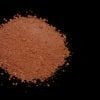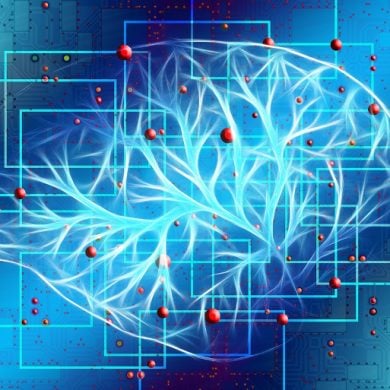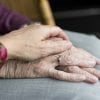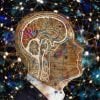Gut-Brain Axis: The Connection Between Illnesses of the Digestive and Nervous Systems - Neuroscience News
Published by Reblogs - Credits in Posts,

Gut-Brain Axis: The Connection Between Illnesses of the Digestive and Nervous Systems
·December 12, 2022
Summary: A new study aims to investigate the interaction between the digestive and nervous systems, or the gut-brain axis, to discover more about the links between digestive health and neurodegenerative diseases.
Source: FAU
How do the gut and the brain interact, and can this even trigger disease?
There is growing consensus within the research community that the nervous and digestive systems interact with each other. How exactly, however, is still largely unknown.
The German Research Foundation (DFG) is now funding a new clinical research unit at Friedrich-Alexander-Universität Erlangen-Nürnberg (FAU) that will investigate the interaction between the digestive and nervous systems with reference to inflammatory and degenerative diseases, the first collaborative research group in Germany to explore the "gut-brain axis".
The interdisciplinary team will receive a total of 6 million euros of funding over the coming four years.
For several years now, medical research has become increasingly fascinated by the buzzword "gut-brain axis". This refers to the assumption that there is a connection between neurological diseases and immunological changes in the gastrointestinal tract, in other words that the gut and the brain interact, and that as a result of this interaction, diseases in either system may mutually affect each other or even act as a trigger for the disease in the first place.
Studies show that patients with chronic inflammatory bowel diseases (IBD) have a greater risk of developing Parkinson’s disease later in life. Or that there may be a connection between multiple sclerosis and IBD.
The interaction is controlled by a highly complex communication system involving neural, hormonal, metabolic, immunological and microbial signals.
The newly established clinical DFG research unit 5024 "Immune checkpoints of gut-brain communication in inflammatory and neurodegenerative diseases" led by Prof. Dr. Claudia Günther, FAU professor of gastrointestinal pathophysiology, and speaker Prof. Dr. Beate Winner, head of the Department of Stem Cell Biology at Universitätsklinikum Erlangen, will investigate what exactly this communication involves.
See also

July 26, 2022
Cocoa Shown to Reduce Blood Pressure and Arterial Stiffness in First Real-Life Study

Studies show that patients with chronic inflammatory bowel diseases (IBD) have a greater risk of developing Parkinson’s disease later in life. Image is in the public domain
The new research field is characterized not only by the close interdisciplinary collaboration between immunology, gastroenterology and neurosciences, but also by the integration of bioinformatics and machine learning as well as medical engineering.
Over the coming years, the researchers hope first of all to obtain more specific insights into the interaction between the gut and the brain in inflammatory and degenerative diseases and to decode immunological switches in communication between the gut and the brain. Building on these findings, they then hope to develop new approaches for treatment aimed at fighting or even preventing diseases of the digestive and nervous systems.
About this gut-brain axis research news
Author: Katrin Piecha
Source: FAU
Contact: Katrin Piecha – FAU
Image: The image is in the public domain
Join our Newsletter
I agree to have my personal information transferred to AWeber for Neuroscience Newsletter ( more information )
Sign up to receive our recent neuroscience headlines and summaries sent to your email once a day, totally free.
We hate spam and only use your email to contact you about newsletters. You can cancel your subscription any time.
Tags
brain researchdigestive systemFAUgut-brain axisinflammationnervous systemneurobiologyneurodegenerative diseasesNeurologyNeuroscienceParkinson's disease
Neuroscience News posts science research news from labs, universities, hospitals and news departments around the world. Science articles can cover neuroscience, psychology, AI, robotics, neurology, brain cancer, mental health, machine learning, autism, Parkinson's, Alzheimer's, brain research, depression and other topics related to cognitive sciences.
Related

The Biological Basis of Network Control Theory in Brain Dynamics

Should You Believe Your Eyes? Not Necessarily in Virtual Reality

Exercise and Mindfulness Don’t Appear to Boost Cognitive Function in Older Adults
One Comment
- The gut and brain are closely connected as you’ve said. Nevertheless, their is a third member of that partnership that may have a profound influence on Parkinson’s. The major cause of Parkinson’s is lack of sunlight (note, I did not say vitamin D, which does little good for Parkinson’s though it has terrific effects on other diseases). Greater amounts of dopamine, serotonin, endorphin and brain-derived neurotropic factor (BDNF) are all associated with regular sun exposure. Depression is also inversely associated with sun exposure. In addition, the onset of bipolar disorder is associated with decreased hours of daylight at the birth location. If these things were true, we would expect a lower risk of Parkinson’s disease to accompany regular sun exposure. Thus it is. A meta-analysis from Medical Science Monitor showed that those with high sun exposure levels had only 1/50 the risk of contracting Parkinson’s!Why no mention of this research? For more information: sunlightinstitute.org, and read the book, Embrace the Sun.
Leave a Reply
Your email address will not be published.Required fields are marked *
Comment *
Name *
Email *
Website
Recent Neuroscience Research

The Biological Basis of Network Control Theory in Brain Dynamics

Should You Believe Your Eyes? Not Necessarily in Virtual Reality

Exercise and Mindfulness Don’t Appear to Boost Cognitive Function in Older Adults

Novel Imaging Marker Reveals Very Early Brain Changes in Alzheimer’s Disease

Factors Linked to Optimal Aging Uncovered

A Handy Lesson About Pain and the Brain in Stroke Survivors
Top Neuroscience of the Week

Genetic Variants That Offered Protection During Black Death Are Also Associated With Current Autoimmune Disorders

How Trauma Changes the Brain

A Compound That Reverses Gut Inflammation Developed

Brains With More Vitamin D Function Better

Proprioception: Describing the Genes Associated With the Sixth Sense

Search Neuroscience News
Neuroscience News
Exclusive Member of Mediavine Food
